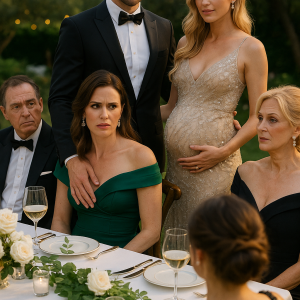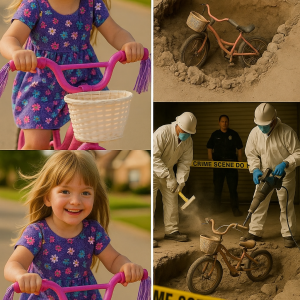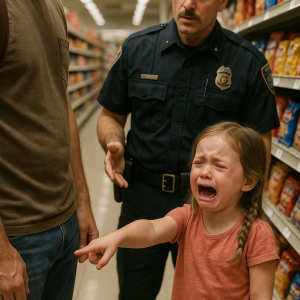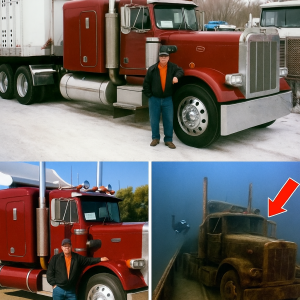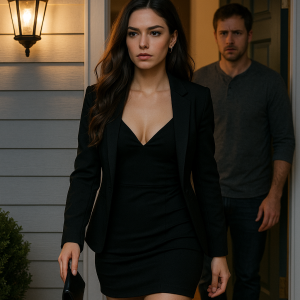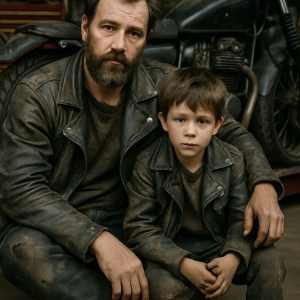At my daughter’s seaside wedding, her groom leaned close with a smug smile.
“Fifty thousand dollars,” he said softly, “or you disappear from our lives.” My daughter raised her glass of champagne, eyes glittering. “Or spend your golden years in solitude. Your choice, Mom.”
I lifted my own glass, lips curving into a smile I hadn’t worn in years. “You forgot something,” I whispered. The color drained from their faces. The tide had already turned.
The evening had been beautiful—sunset bleeding gold into the waves off Cape Cod, lanterns flickering against the darkening sky. Yet beneath that beauty, malice thrived. My daughter Rachel and her polished new husband looked like they had stepped out of a glossy magazine: perfect, poised, untouchable. They believed I was powerless. Disposable.
But I wasn’t the same woman they thought they could bully. I had been forged in storms far harsher than this. And I had prepared.
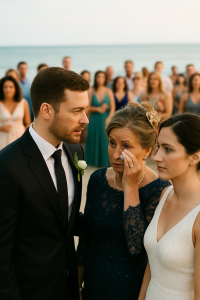
“Something you forgot,” I murmured again, letting the ocean breeze carry my words. Then I excused myself gracefully, as though nothing had happened. They didn’t realize the avalanche had already begun.
I had been twenty-eight the night I first ran from destruction. The rain in Boston pounded hard enough to sting. Inside our shabby apartment, silence felt heavier than the storm. My husband was unconscious on the couch, his fury dulled by drink. My cheek ached. In the hallway, Rachel—just four years old—clutched her worn-out bunny, her eyes too hollow for a child.
That was the breaking point. Her silence terrified me more than the bruises. I packed quickly: clothes, passports, and the $237 hidden in a hollowed-out book. When I lifted her into my arms, she whispered, “Is this an adventure, Mommy?”
“Yes, sweetheart,” I told her. “The biggest one yet.”
We disappeared into the night.
Life afterward was grueling but free. A borrowed couch. A one-room apartment that smelled of cabbage but had peace. I worked mornings at a diner, evenings answering phones, nights scrubbing floors. Exhaustion lived in my bones, but Rachel was safe.
She grew. She thrived. When she was accepted to Boston University, she danced in our tiny kitchen, her joy lighting the room. I worked even harder, juggling shifts to cover what her scholarship didn’t. I thought it was worth every sacrifice.
When she graduated, she dreamed of her own boutique. She called one night, voice trembling with excitement—and need. Ninety-seven thousand dollars. I gave her my retirement savings. But with my friend Sarah’s help, I retained majority ownership, quietly protecting myself.
“Rachel’s Closet” bloomed. At first it struggled, but then an influencer spotlighted her designs, and suddenly the store was buzzing. Rachel claimed she had built it “from nothing.” I swallowed the sting, watching from the shadows as I was erased from her story.
Then came David Harrington. Wealthy. Smooth. Entitled. He swept her into his world, while I learned of her engagement through Facebook. A message not meant for me revealed their plan: to use my money, minimize my presence, and discard me after the wedding.
They thought I was a fool.
So when David demanded $50,000 on that Cape Cod beach, my decision was already made. I slipped away to a quiet alcove, pulled out my phone, and sent one coded message to Sarah: Sand castle time.
The dominoes fell within minutes. Investors received sealed envelopes: legal notices of audits, account freezes, evidence of irregularities. Vendors were alerted. Phones buzzed, panic rippled, and David’s father exploded in fury.
Rachel came running. “Mom, what’s happening? Fix this!”
I stayed calm. “Not madness. Reality. I’ve reclaimed my rights as majority owner.”
David hissed, “You’ve ruined everything.”
“No,” I said evenly. “I’ve safeguarded what I built. You funneled money into side projects, and now you’ll face the fallout.”
Rachel sobbed. “Mom, please! I’m your daughter!”
“And I loved you enough to build this dream for you,” I said quietly. “But you showed me what I meant to you. Tonight, I believed you.”
I turned and walked away, leaving them in the wreckage of their own making.
With Sarah’s help, I started fresh. A small storefront in Rockport. I painted the walls, stocked shelves with secondhand treasures and handmade goods, and named it Harbor & Home. Locals wandered in, then stayed. My shop filled with laughter, poetry readings, and evenings where strangers became friends.
For the first time, I wasn’t just someone’s mother, someone’s safety net. I was me. Whole.
Months later, Rachel walked into my shop on a stormy night. Her once-glamorous veneer was gone. Damp coat, hollow eyes, voice trembling. “David’s gone. I have nothing. No place to stay. Please, Mom.”
I wanted to embrace her, but I remembered the betrayal. “You had a place,” I said. “You burned it down.”
Through tears, she admitted, “I thought if I erased you, I’d prove I was strong. I didn’t see what I was doing.”
“No,” I corrected softly. “You chose not to see.”
She begged for one more chance. I handed her the address of a shelter. “If you want real change, start here. I won’t carry you anymore, but I won’t let you drown.”
Her voice broke. “Do you still love me?”
“Always,” I said. “But love doesn’t mean blindness. It means truth. And the truth is—you must build yourself now.”
Time passed. I heard whispers—Rachel working at a thrift store, going to therapy, piecing together a real life. She didn’t return, but I didn’t chase her. My love was no longer sacrifice; it was space.
And I built, too. My shop thrived. Tourists, locals, community. Warm light, laughter, peace.
One year after the wedding, a small envelope arrived. No return address. Inside, a Polaroid: Rachel, paint-stained apron, standing in front of a modest apartment, tired but smiling. On the back, four words:
Building from nothing, Mom.
I pressed it to my chest, breathing deep. The waves of Cape Cod were just waves now, rolling endlessly toward shore. And I was finally free.
